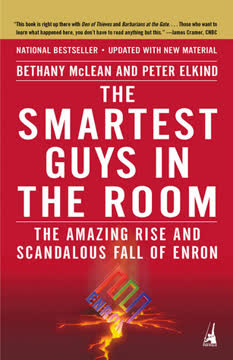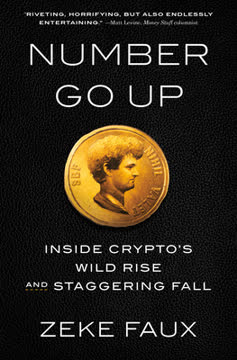つの重要なポイント
1. カリスマ的リーダーシップと大胆なビジョンによるWeWorkの急成長
「アダム・ニューマンは単にオフィススペースを売っていたのではなく、ムーブメントを売っていた。」
革命的なコンセプト。 WeWorkはシンプルなアイデアから始まった:伝統的なオフィススペースを、フリーランサー、スタートアップ、そして既存の企業にとって活気に満ちたコミュニティ主導の職場に変えること。共同創業者のアダム・ニューマンとミゲル・マケルビーは、仕事が単なる場所ではなく、ライフスタイルとして受け入れられる世界を想像していた。
急速な成長と評価。 会社の拡大は目を見張るものがあった:
- 2010年:ニューヨーク市に最初のWeWork拠点を開設
- 2014年:評価額15億ドル
- 2017年:評価額200億ドル
- 2019年:評価額470億ドルにピーク
この爆発的な成長は、ニューマンのカリスマ性、野心的なビジョン、そしてWeWorkが単なる不動産会社ではなく、人々の働き方を革命的に変えるテクノロジー企業であると投資家を納得させる能力によって支えられていた。
2. アダム・ニューマンの型破りな経営スタイルと風変わりな行動
「ニューマンの壮大な宣言と派手なパーティーへの嗜好は、WeWorkの洗練されたオフィススペースと同じくらいそのアイデンティティの一部となった。」
個性のカルト。 ニューマンは、WeWorkを通じて世界の問題を解決できるビジョナリーリーダーとして自らを位置づけ、ほぼ救世主的なイメージを育んだ。彼の経営スタイルは以下の特徴を持っていた:
- 衝動的な意思決定
- 会社のイベントや個人的な贅沢に対する豪華な支出
- 個人的と職業的な境界の曖昧化
物議を醸す行動。 ニューマンの行動は眉をひそめさせ、倫理的な懸念を引き起こした:
- 自身が所有する建物をWeWorkにリース
- 「We」という名前を商標登録し、会社に590万ドルで売却
- 勤務時間中や会議中の頻繁な薬物使用
これらの行動は、会社の急成長のために当初は見過ごされていたが、後に厳しい監視の対象となり、WeWorkの崩壊に寄与することとなった。
3. 投資家を引きつけるストーリーテリングとブランディングの力
「WeWorkは平方フィートを売っていたのではなく、夢を売っていた。」
魅力的な物語の構築。 WeWorkが投資を引きつける成功は、単なる不動産会社以上の存在として自らを位置づける能力に大きく依存していた。会社の物語は以下に焦点を当てていた:
- グローバルなコミュニティの創造
- 人々の働き方と生活の革命
- スペースの最適化にテクノロジーを活用
マーケティングの巧みさ。 WeWorkのブランディング努力は洗練され、広範囲に及んでいた:
- 一目でわかる洗練されたモダンなオフィスデザイン
- セレブリティやインフルエンサーとの高いプロファイルのパートナーシップ
- 持続可能性と社会的影響への強調
この物語により、WeWorkは基本的に不動産ベースのビジネスモデルにもかかわらず、テクノロジー企業の評価を受けることができた。投資家は、単なる伝統的なオフィスリース会社ではなく、未来のビジョンに投資していたのだ。
4. WeWorkの急速な拡大と疑わしいビジネス慣行
「損失が増大する中でも、成長がWeWorkのモットーとなった。」
攻撃的な拡大戦略。 WeWorkの成長は容赦なく、グローバルに展開された:
- 新しい拠点を驚異的なペースで開設
- 新しい市場や国への急速な拡大
- 教育(WeGrow)や共同生活(WeLive)などの分野への多角化
財務上の赤信号。 成長にもかかわらず、WeWorkのビジネスモデルには重大な弱点があった:
- 巨大な損失:2018年には18億ドルの収益に対して19億ドルの損失
- 高い顧客獲得コスト
- 長期リース義務と短期顧客契約の不一致
- 真の財務状況を隠すための創造的な会計慣行
この拡大戦略は成長を優先し、収益性を後回しにするアプローチであり、最終的には持続不可能であり、会社の崩壊に寄与することとなった。
5. WeWorkの成長におけるソフトバンクとそのビジョンファンドの役割
「孫正義の支援はWeWorkをユニコーンから金融巨人に変え、最終的にはその崩壊を早めた。」
ソフトバンクの巨額投資。 日本のコングロマリットであるソフトバンクは、孫正義の指導の下、WeWorkの最大の投資家となった:
- 2017年の最初の44億ドルの投資
- その後の合計100億ドル以上の投資
ビジョンファンドの影響。 ソフトバンクの関与はWeWorkに深い影響を与えた:
- さらに急速な拡大を奨励
- より高い評価を推進
- リターンを提供するためのIPOへの圧力を生み出す
WeWorkとソフトバンクの関係は共生的であったが、最終的には問題を引き起こした。ソフトバンクの深いポケットはWeWorkが攻撃的な成長戦略を追求することを可能にしたが、同時に公的市場の投資家に正当化するのが難しい非現実的な期待と評価を生み出した。
6. WeWorkのIPOの崩壊とその後の影響
「WeWorkのIPO申請は勝利の瞬間となるはずだったが、代わりに会社の欠陥をすべてに明らかにした。」
IPOの失敗。 WeWorkの2019年の上場試みは急速に災難に変わった:
- S-1申請書は巨大な損失と疑わしいガバナンスを明らかにした
- ニューマンの行動と利益相反に対するメディアの厳しい監視
- 急速に低下する評価見積もり
結果。 失敗したIPOは一連の出来事を引き起こした:
- アダム・ニューマンがCEOを辞任することを余儀なくされる
- 大規模な解雇とコスト削減措置
- ソフトバンクの救済によってのみ回避された破産寸前
IPOプロセスはWeWorkの根本的な弱点を露呈し、その膨らんだ評価と持続不可能なビジネス慣行に対する精算を強いることとなった。「世界の意識を高める」ことを目指していた会社は、地に足をつけることを余儀なくされた。
7. スタートアップと投資家にとってのWeWorkの教訓
「WeWorkの物語は、成長とビジョンを健全なビジネス基盤よりも優先することの危険性を示している。」
スタートアップの教訓:
- 持続可能な成長は急速な拡大に勝る
- 企業ガバナンスは、非公開企業であっても重要
- カリスマ性は実行可能なビジネスモデルの代わりにはならない
投資家の教訓:
- ハイプやFOMOに関係なく、デューデリジェンスは重要
- 業界の境界を曖昧にする企業には注意
- 創業者中心の企業は独自のリスクを伴う
WeWorkのサーガは、スタートアップエコシステムにおける潜在的な落とし穴を鮮明に示している。バランスの取れた成長、透明なガバナンス、そして基本的なビジネスメトリクスへの焦点の必要性を強調している。投資家にとっては、徹底的な分析と懐疑心の重要性を強調している。
最終更新日:
FAQ
What's The Cult of We about?
- WeWork's Rise and Fall: The book chronicles the rapid ascent and subsequent collapse of WeWork, co-founded by Adam Neumann, highlighting its peak valuation of nearly $47 billion.
- Investment Culture: It examines the investment culture that fueled WeWork's growth, focusing on major investors like SoftBank and their funding strategies.
- Broader Themes: The narrative explores themes of ambition, excess, and the cult of personality in Silicon Valley, questioning modern capitalism and unchecked growth.
Why should I read The Cult of We?
- Startup Culture Insight: Offers a deep dive into Silicon Valley's startup culture, showing how charisma can overshadow sound business practices.
- Leadership Lessons: Provides valuable insights into leadership and governance, highlighting the pitfalls of founder-centric companies.
- Economic Context: Contextualizes WeWork's story within broader economic trends, serving as a cautionary tale about prioritizing growth over sustainability.
What are the key takeaways of The Cult of We?
- Sustainable Growth: Emphasizes the dangers of rapid growth without a sustainable business model, as illustrated by WeWork's collapse.
- Investor Influence: Highlights the critical role investors play in shaping a company's trajectory, often enabling reckless behavior.
- Founder Cult: Discusses the "cult of the founder" phenomenon, where charismatic leaders are given unchecked power, leading to poor decision-making.
How did Adam Neumann's leadership style impact WeWork?
- Charismatic Leadership: Neumann's charisma attracted investment and a loyal following, contributing to WeWork's initial success.
- Lack of Accountability: His leadership style led to a lack of accountability, with decisions made without board consultation.
- Conflicts of Interest: Personal investments in properties leased by WeWork created conflicts of interest, raising investor concerns.
What role did SoftBank play in WeWork's rise?
- Financial Backing: SoftBank provided billions in funding, boosting WeWork's valuation and enabling rapid expansion.
- Strategic Influence: CEO Masayoshi Son encouraged aggressive growth targets, allowing Neumann to operate with a sense of invincibility.
- Cautionary Tale: The partnership highlights the risks of relying on a single investor, as mounting losses made promises unsustainable.
How did WeWork's business model contribute to its downfall?
- Unsustainable Growth: The model of leasing long-term and subletting short-term led to financial strain and reliance on continuous funding.
- High Operating Costs: Rapid expansion resulted in high costs that outpaced revenue growth, creating a cycle of increasing losses.
- Failure to Adapt: Struggled to adapt to market changes, with a focus on branding over profitability, leading to investor skepticism.
What is "community-adjusted EBITDA" and why is it significant?
- Non-Traditional Metric: A non-standard financial metric created by WeWork to present a more favorable view of profitability.
- Misleading Representation: Allowed WeWork to portray itself as profitable despite significant losses, raising analyst and investor concerns.
- Investor Confidence Impact: Contributed to a perception of WeWork as a tech company, leading to a loss of confidence when true finances were revealed.
How did the culture at WeWork evolve over time?
- Startup to Corporate: Transitioned from a scrappy, community-oriented culture to a more corporate environment with increased hierarchy.
- Party Atmosphere: Known for a party-like atmosphere, attracting young employees but raising professionalism concerns.
- Leadership Disconnect: As Neumann became more removed, a disconnect grew between leadership and staff, affecting morale.
How did the failed IPO affect WeWork's future?
- Investor Confidence Loss: The failed IPO led to a significant drop in valuation and difficulty securing additional funding.
- Operational Changes: Prompted leadership restructuring and cost-cutting to stabilize the company.
- Business Strategy Shift: Refocused on core office space subleasing, shedding extraneous ventures for survival.
What lessons can be learned from The Cult of We?
- Strong Governance Need: Emphasizes the importance of robust corporate governance to prevent excesses of charismatic leaders.
- Investor Reality Check: Cautions investors to look beyond hype and charisma, highlighting the need for due diligence.
- Vision and Practicality Balance: Stresses the need for leaders to balance ambitious visions with practical business considerations.
How did the Neumanns' personal lives intertwine with WeWork?
- Lavish Lifestyle: The Neumanns' extravagant spending was often funded by WeWork, raising ethical concerns.
- Family Involvement: Rebekah Neumann's role in WeWork influenced the company's direction, often overshadowing business needs.
- Public Perception: Their personal choices became part of WeWork's narrative, clashing with business realities and contributing to its downfall.
What are the best quotes from The Cult of We and what do they mean?
- “If you do the right thing, you make the most money.”: Reflects Neumann's belief in ethical business practices, though often clashing with WeWork's reality.
- “We’re disconnected.”: Highlights WeWork's mission to foster community, ironically contrasting with members' feelings of isolation.
- “I want to be a billionaire so fucking bad.”: Captures Neumann's ambition and desire for wealth, overshadowing ethical business considerations.
レビュー
『The Cult of We』は、WeWorkの興隆と没落を描いた魅力的な一冊であり、その徹底した調査と引き込まれるようなストーリーテリングで高く評価されている。読者は、スタートアップ文化、企業の強欲、そして金融不正行為の探求が非常に興味深いと感じた。多くの人がこの本を「Bad Blood」などの他の企業スキャンダル本と比較して好意的に評価している。著者たちの複雑な金融概念の明快な説明も好評だった。一部の読者は時折退屈に感じることもあったが、ほとんどのレビューアーはアダム・ニューマンの傲慢さと会社の壮絶な崩壊の衝撃的な詳細に魅了された。
Similar Books














